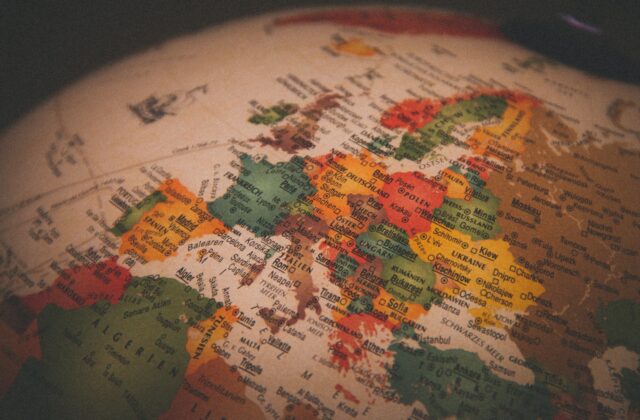
A look back at the workshop
Here is what Melek Alkım Belevi, Sociology Student, UvA & Member of Amsterdam United had to say about this workshop and her experience of the symposium:
“The symposium was an opportunity to get to know scholars from different fields who I aspire to collaborate with in the future. Their critical perspectives encouraged me to challenge the mainstream and look beyond the canonical. The workshop I attended, “Weirding Europe: Contesting the Realist Paradigm in Contemporary Video and Film on Migration” displayed a poetic portrait of otherness in Europe by looking at the ghostly subjectivity of the migrants through footage from three different films.
Their invisibility in the era of hyper-visibility has demonstrated different ways of resistance to the socially constructed representation of migrants and refugees. Contrary to being documented, the films have put the dispossessed in the documentary seat while reconstructing their binary framing as either the passive victims or the active threats. Going beyond the photo-journalistic frame, where we only see refugees as liminal beings presented with observational selectivity of orchestrated footage, these films used alternative ways of representation and resistance that are usually reserved for dominant groups.
With the repurposed and re-signified surveillance perspective, the visual regime of surveillance in Europe was turned upside down.
All three films and their discussion have unveiled the fortress Europe’s gaze, policies, and politics towards its dispossessed and overlooked inhabitants. The refugees’ and migrants’ resistance and constancy come with meaning and a cost; they reclaim their agency and power that is taken away from them.”
About the workshop
The method of engagement in this workshop was through video and film on migration that move away from representational realism as a dominant form of visibility for migrants in the context of the so-called ‘migrant crisis’. Rather, the works focused on in the workshop mobilize mixed genres, new visual codes, and different modes of (re)presentation (fictional, poetic, self-reflexive, speculative, hyperrealist etc.) to capture the experiences, desires, and individual or collective projects of migrants and their visions on Europe. We discussed collectively which fictional, estranging, experimental visual grammars are mobilized in such films to contest documentary-style or photo-journalistic representations, which often portray migrants as either “victims” or “threatening agents,” and how these new grammars counter xenophobic attitudes, anti-immigration policies, and neo-liberal modes of governance in European societies. Reversing the common focus on the representation of migrants in art, we instead veered towards the question of how films and videos on migration end up weirding Europe itself.
Organisers
Maria Boletsi is Endowed Professor at the University of Amsterdam, where she holds the Marilena Laskaridis Chair of Modern Greek Studies. She is also Assistant Professor at the Film and Literary Studies department of Leiden University and NIAS fellow 2021/22, where she is part of the NIAS theme group.
Florian Lippert is Associate Professor (UHD) and Profile Coordinator for European Culture and Literature. Together with Maria Boletsi is is part of the NIAS Theme group. His project centers on the question: How have idea(l)s of “cultural sameness” within Europe developed in recent political communication and in public perceptions?
Janna Houwen’s research stems from one fundamental question: how do works of art that people create with media technologies (in the widest sense of the word; from painting to new media, from novels to digital cinema) produce ways of looking at, and being in, the world? In hercurrent research, Houwen centers on political and social contexts where the interrelation between people and film and video art matters most: contexts where precisely the “being in the world” that art can foster is under threat; where being a person, living a political and personal life, is not self-evident.
About the NIAS Symposium 2022
Why, when and how does an object become contested? From street signs to monuments, from statues to spices – things and their meanings are under scrutiny. In recent years the racial and colonial dimensions of material culture have gained particular attention. Some traces have been around for years, others have a more recent history. Increasingly, people have become outspoken about the need to become aware of the different ways to consider not just the past, but also those objects that remind us of it.
During the NIAS Symposium we will collectively explore what insights we can gain by shedding light on the racial and colonial dimensions of our material culture.
